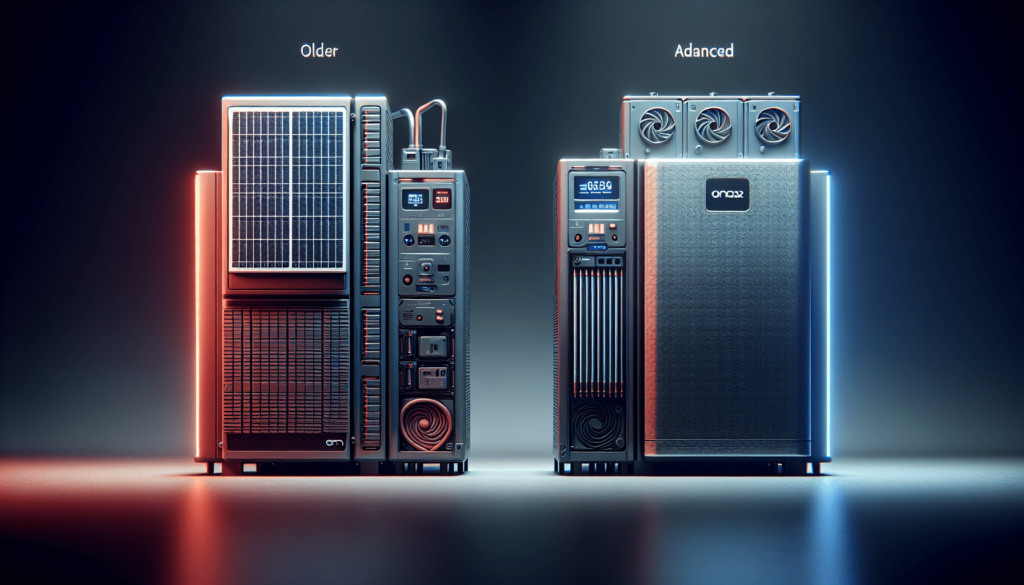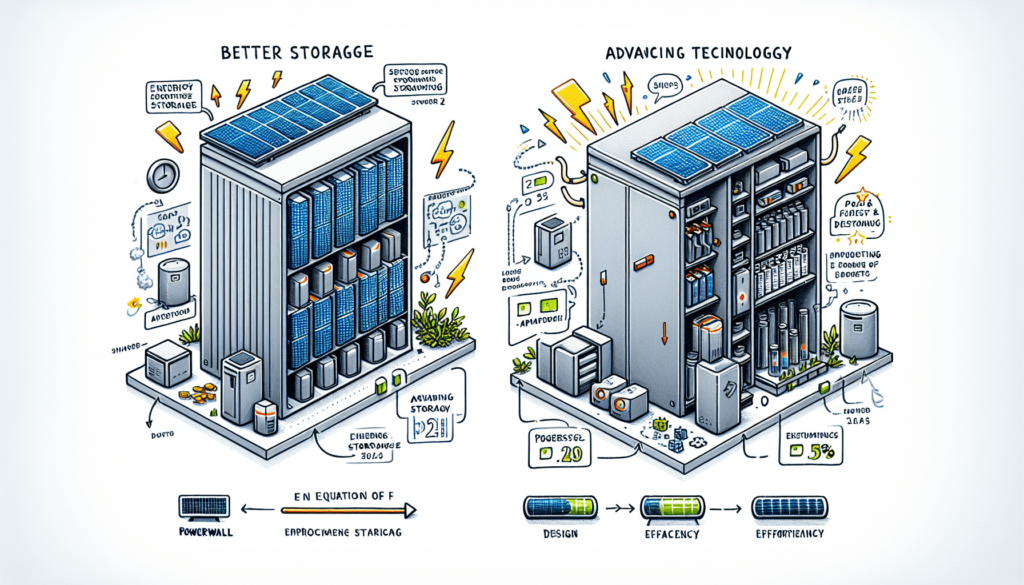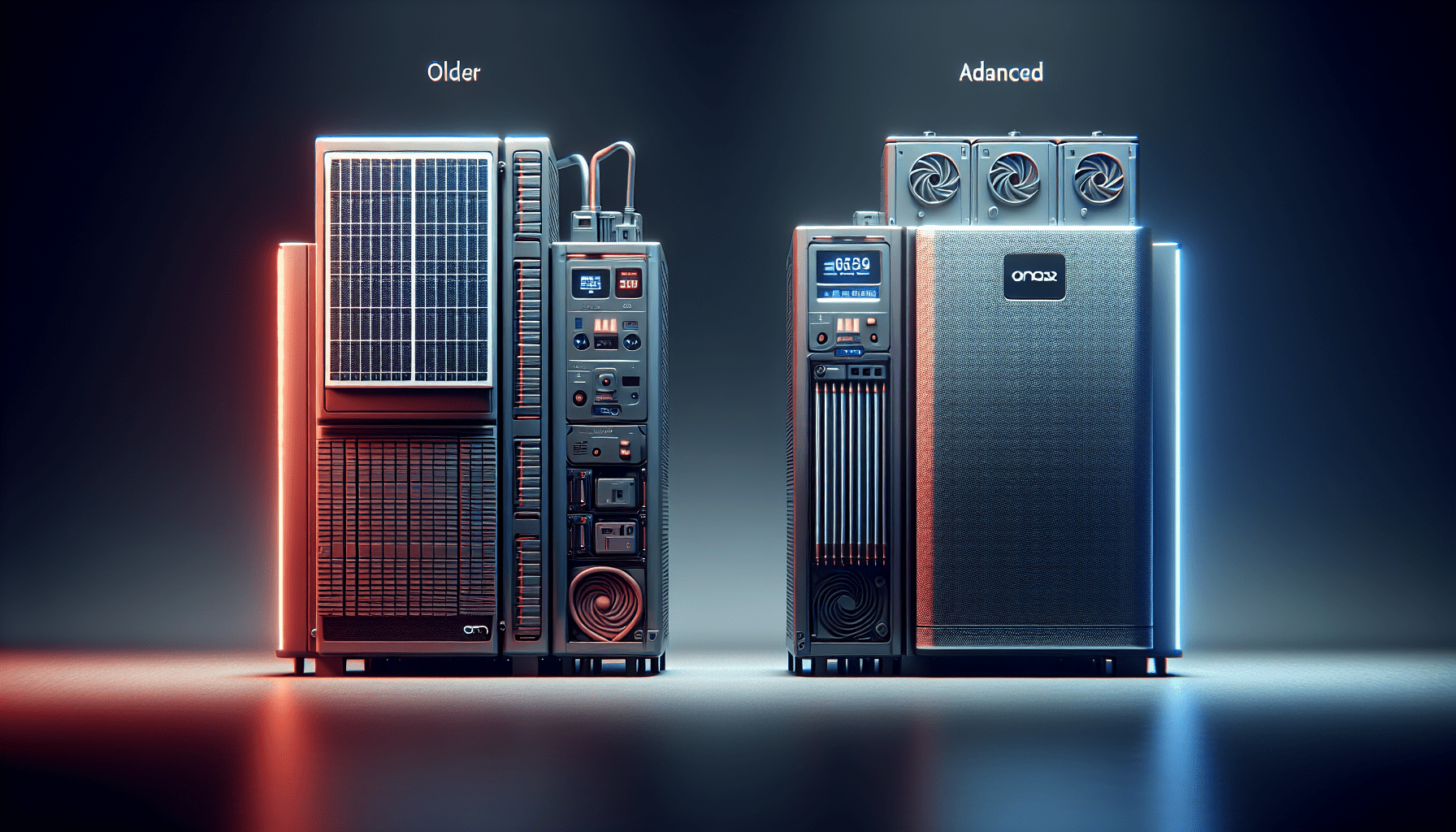Hello there! Are you considering investing in a Tesla Powerwall but unsure whether to go for the Powerwall 2 or the newer Powerwall 3? In this article, we will compare the two models to help you make an informed decision. From improved battery capacity to enhanced performance features, we will discuss the key differences between these two options. Stay tuned to discover which one suits your energy storage needs best! Have you been considering investing in a Tesla Powerwall for your home, but are unsure whether to go with the Powerwall 2 or wait for the release of the Powerwall 3? In this friendly and informative article, we will compare the two models to help you make an informed decision.
Introduction to Tesla Powerwall
Before we dive into the comparison between the Powerwall 2 and Powerwall 3, let’s first take a look at what the Tesla Powerwall is and what it can do for your home. The Tesla Powerwall is a rechargeable lithium-ion battery designed to store energy from solar panels or the grid, allowing you to use that energy when it is most beneficial for you.
Benefits of Owning a Tesla Powerwall
Owning a Tesla Powerwall comes with a myriad of benefits, including:
- Energy independence: With a Powerwall, you can store excess energy generated from your solar panels or the grid and use it when you need it most, reducing your reliance on the grid.
- Backup power: In the event of a power outage, the Powerwall can keep your lights on, your refrigerator running, and your devices charged.
- Cost savings: By storing and using energy when electricity rates are lower, you can reduce your electricity bills and potentially save money in the long run.
Tesla Powerwall 2: Overview and Specs
The Tesla Powerwall 2 was released in 2016 and quickly became a popular choice for homeowners looking to add battery storage to their solar systems. Let’s take a closer look at the specs of the Powerwall 2.
Powerwall 2 Specs:
- Usable capacity: 13.5 kWh
- Power output: 5 kW continuous, 7 kW peak
- Efficiency: 90%
- Warranty: 10 years
The Powerwall 2 has been praised for its sleek design, high energy capacity, and seamless integration with solar systems. It has been a game-changer for many homeowners looking to increase their energy independence and reduce their carbon footprint.

Tesla Powerwall 3: What to Expect
While the Powerwall 3 has not been officially released yet, there have been rumors and speculation about what we can expect from the next iteration of Tesla’s home battery storage solution. Let’s explore some of the potential improvements and features of the upcoming Powerwall 3.
Expected Improvements:
- Increased capacity: There have been rumors that the Powerwall 3 will have a larger usable capacity than the Powerwall 2, allowing homeowners to store more energy for later use.
- Faster charging and discharging: Tesla is known for its advancements in battery technology, so it’s safe to assume that the Powerwall 3 will have faster charging and discharging capabilities.
- Enhanced efficiency: With each new iteration, Tesla has improved the efficiency of its batteries, so the Powerwall 3 is likely to be even more efficient than the Powerwall 2.
- New design: Tesla is always striving to improve the design of its products, so we can expect the Powerwall 3 to be even sleeker and more aesthetically pleasing than its predecessor.
Tesla Powerwall 2 vs Powerwall 3: A Side-by-Side Comparison
Now that we’ve covered the basics of the Tesla Powerwall 2 and what to expect from the Powerwall 3, let’s do a side-by-side comparison of the two models to see how they stack up against each other.
Capacity:
- Powerwall 2: 13.5 kWh
- Powerwall 3: Expected to have a larger capacity than the Powerwall 2
When it comes to energy storage capacity, the Powerwall 3 is expected to outperform the Powerwall 2, allowing homeowners to store more energy for later use.
Power Output:
- Powerwall 2: 5 kW continuous, 7 kW peak
- Powerwall 3: Expected to have similar or improved power output compared to the Powerwall 2
Both the Powerwall 2 and Powerwall 3 are expected to have similar power output capabilities, but the Powerwall 3 may have some improvements in this area.
Efficiency:
- Powerwall 2: 90%
- Powerwall 3: Expected to be more efficient than the Powerwall 2
Tesla is always working on improving the efficiency of its batteries, so it’s safe to assume that the Powerwall 3 will be more efficient than the Powerwall 2, allowing homeowners to maximize their energy storage and usage.
Design:
- Powerwall 2: Sleek design, wall-mounted
- Powerwall 3: Expected to have an even sleeker design
Tesla is known for its sleek and innovative designs, so the Powerwall 3 is expected to be even more aesthetically pleasing and seamlessly integrated into your home than the Powerwall 2.
Price:
- Powerwall 2: Current retail price around $6,500 (excluding installation)
- Powerwall 3: Pricing has not been announced yet
When it comes to pricing, the Powerwall 3 is expected to be in a similar price range to the Powerwall 2, but as with any new technology, pricing may vary depending on market conditions and availability.

Conclusion
In conclusion, both the Tesla Powerwall 2 and the upcoming Powerwall 3 have their own set of advantages and improvements that make them attractive options for homeowners looking to add battery storage to their solar systems. The Powerwall 2 is a tried and tested solution with a solid track record, while the Powerwall 3 is anticipated to bring even more advanced features and capabilities to the table. Whether you choose the Powerwall 2 or decide to wait for the Powerwall 3, you can rest assured that you are investing in a high-quality and reliable product that will help you achieve energy independence and reduce your reliance on the grid. Happy decision-making!
